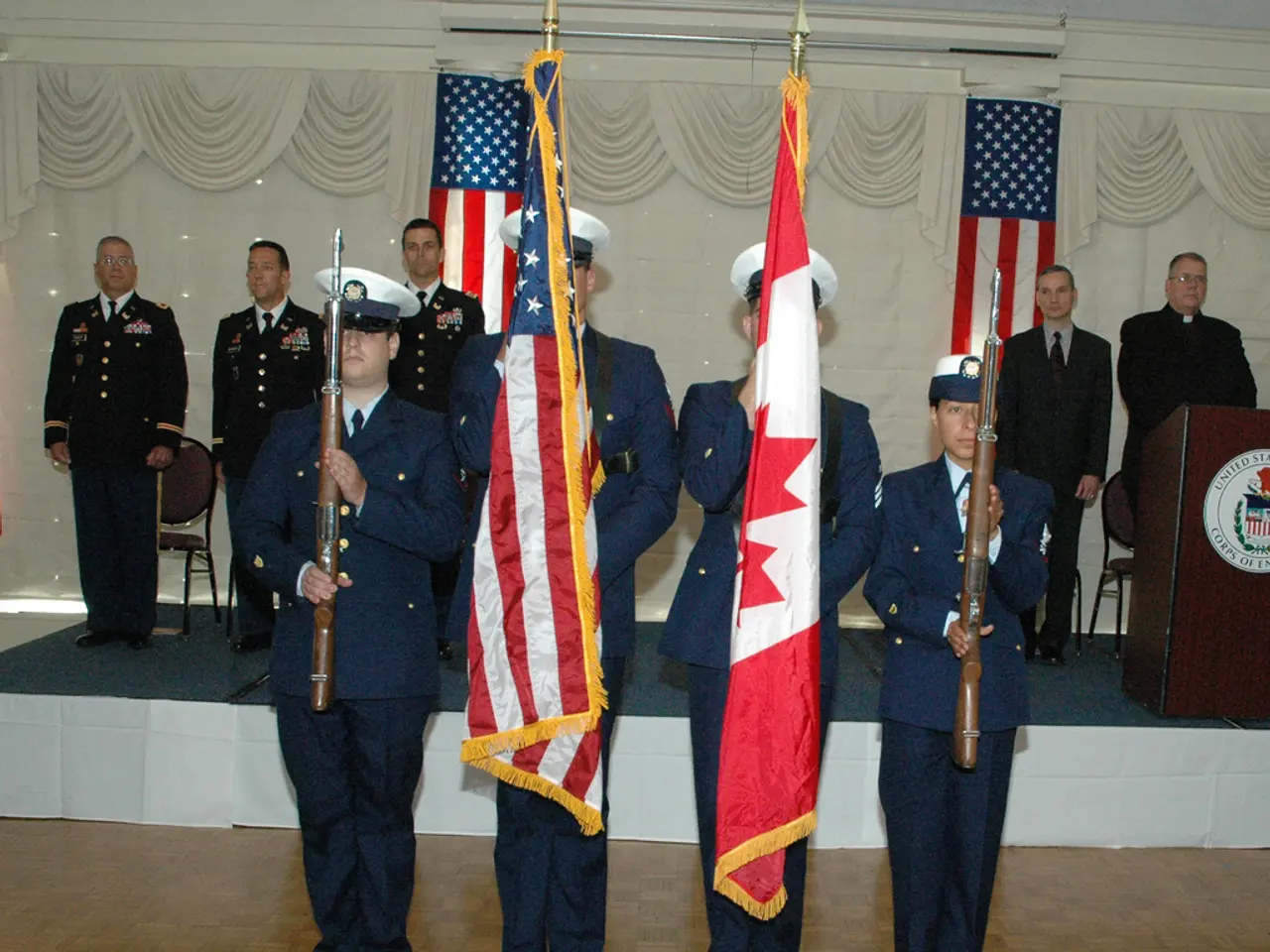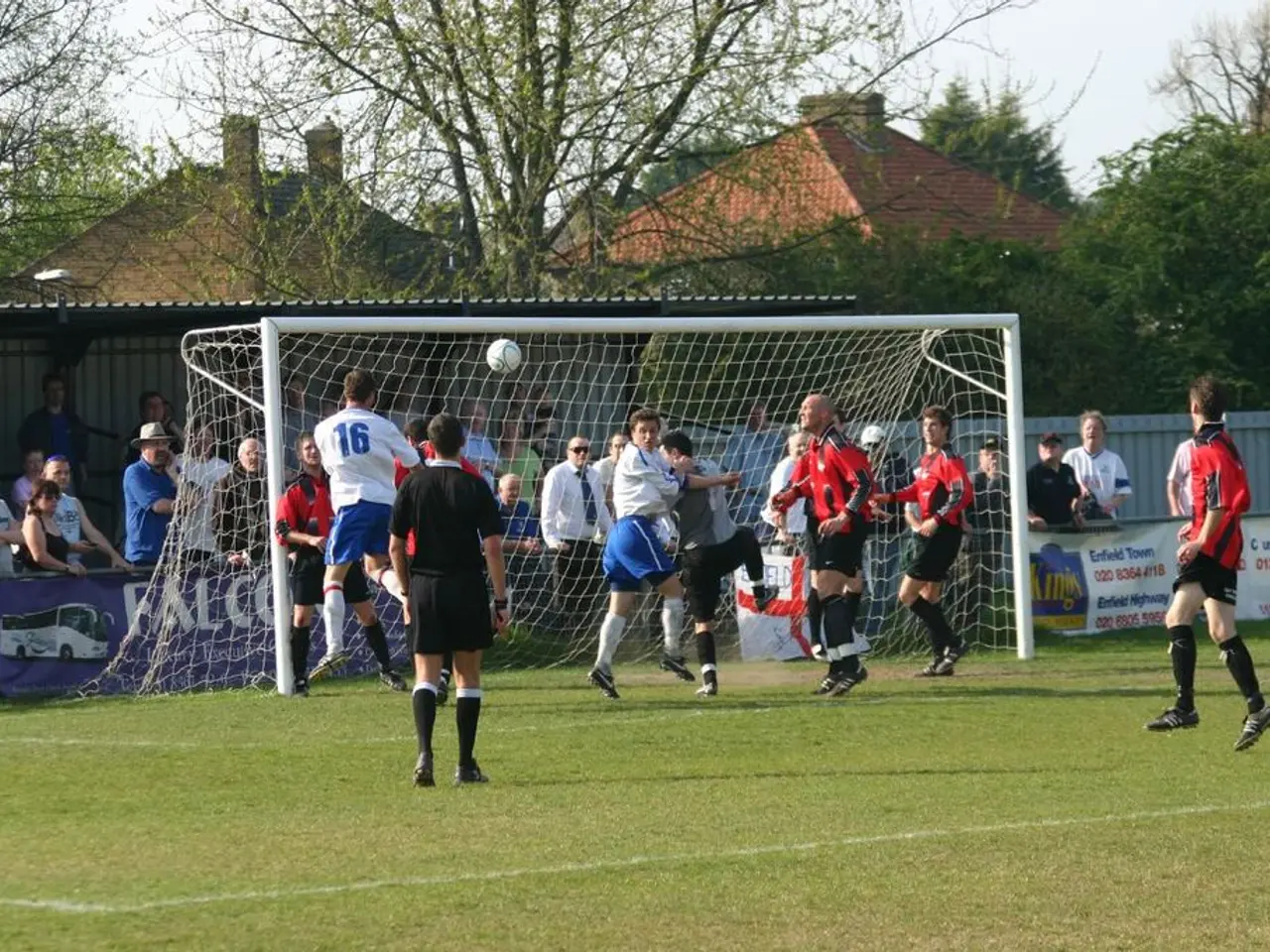United Nations Mission in Iraq (UNAMI) Mandate May Require Extension
In a tense regional landscape, the United Nations Assistance Mission for Iraq (UNAMI) continues to play a vital role in Iraq, working closely with the Iraqi government on political, electoral, and national unity issues. The mission, established by the United Nations Security Council in 2003, has been extended for a final time with the adoption of Resolution 2732 in May 2024, aligning with the Iraqi government's proposed timeline.
As of mid-July 2025, UNAMI's mandate is under review at the UN Security Council. The Special Representative of the UN Secretary-General for Iraq, Dr. Mohamed Al Hassan, has expressed hope that the upcoming Council decision will provide clear guidance on the mission's future mandate.
Dr. Al Hassan, an Arabic-speaking diplomat from Oman, has been managing a geopolitical crisis in Iraq, engaging effectively with Iraqi counterparts, including a rare meeting with Grand Ayatollah Ali Al-Sistani in Najaf. The meeting led to a statement from Sistani's office that underscored the necessity of "preventing external interventions in all their forms," alluding to both Israel and Iran.
UNAMI's current role is multifaceted. It supports preparations for upcoming parliamentary elections, tackles challenges to ensure fair and transparent voting, and promotes dialogue between the federal government and Kurdistan Regional Government to strengthen national unity. The mission also continues to support Iraq’s justice reforms and initiatives to promote equality and humanitarian goals in cooperation with the Iraqi government.
Iraq's diplomatic efforts to strengthen political and economic ties with its neighbours reflect its growing confidence on the international stage. Maintaining a neutral third-party presence like UNAMI could be strategically beneficial for Iraq as it navigates complex regional dynamics.
The final status of UNAMI will likely be clarified by the UN Security Council’s pending decision on the mission’s mandate, expected soon. Iraqi leaders should carefully evaluate the advantages of retaining a UNAMI mission beyond the December 31 deadline, dedicated solely to safeguarding Iraq's stability and preventing external crises from spilling over its borders.
The UN Secretary-General's Special Representative, Dr. Al Hassan, has also urged senior leaders in Tehran to help keep Iraq shielded from the broader regional conflict. There are concerns that Israel might extend its attacks into Iraq, targeting Iran-aligned paramilitary groups that are part of the so-called Axis of Resistance.
The author of this piece, Ali Al-Mawlawi, is the director of Horizon Advisory, a London-based consultancy specializing in political economy analysis and governance reform. The views expressed in the piece do not represent the official position of the Wilson Center.
- The United Nations Assistance Mission for Iraq (UNAMI) is working closely with the Iraqi government on various political, electoral, and national unity issues.
- Established by the United Nations Security Council in 2003, UNAMI's mandate is currently under review at the UN Security Council as of mid-July 2025.
- Dr. Mohamed Al Hassan, the Special Representative of the UN Secretary-General for Iraq, has voiced hope for clear guidance on UNAMI's future mandate from the upcoming UN Security Council decision.
- In a tense regional landscape, Dr. Al Hassan, an Arabic-speaking diplomat from Oman, is managing a geopolitical crisis in Iraq, engaging effectively with Iraqi counterparts, including a meeting with Grand Ayatollah Ali Al-Sistani.
- UNAMI supports preparations for upcoming parliamentary elections, tackles challenges to ensure fair and transparent voting, and promotes dialogue between the federal government and Kurdistan Regional Government to strengthen national unity.
- Iraq's diplomatic efforts to strengthen political and economic ties with its neighbours reflect its growing confidence on the international stage, and maintaining a neutral third-party presence like UNAMI could be strategically beneficial.
- The author, Ali Al-Mawlawi, urges Iraqi leaders to carefully evaluate the benefits of retaining a UNAMI mission beyond the December 31 deadline, focusing on safeguarding Iraq's stability and preventing external crises from spilling over its borders.
- Dr. Al Hassan has urged senior leaders in Tehran to help keep Iraq shielded from the broader regional conflict, expressing concerns about Israel extending attacks into Iraq and targeting Iran-aligned paramilitary groups.








